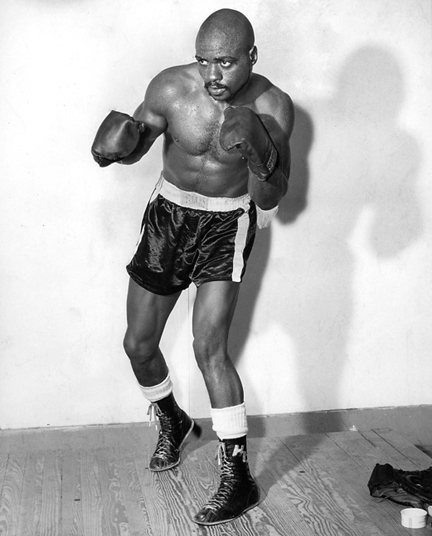 Rubin "Hurricane" Carter died April 20, 2014, at his home in Toronto.
Rubin "Hurricane" Carter died April 20, 2014, at his home in Toronto.
Rubin “Hurricane” Carter was famous for many things in his life. First, he was a world famous boxer who seemed destined to win the World Middleweight Boxing Championship. After losing a title fight for the championship, he was set to make another attempt for the world crown when he was erroneously arrested and wrongfully convicted for the triple murder of three people in a bar in Paterson, New Jersey in 1966. The injustice of his arrest and conviction ignited a massive grassroots campaign to get him a new trial and prove his innocence. Actors, musicians and pro athletes spoke out on his behalf and staged rallies. Bob Dylan sought to bring attention to the case of Rubin Carter by writing and releasing the song “Hurricane” in 1976, the lyrics of which described the facts of the case.
An examination of his complicated 22-year ordeal is not possible in this article, but Carter won his freedom in 1988 when a U.S. District Court of Appeals heard his case and determined that Carter had not received a fair trial. Judge Haddon Lee Sorokin stated that the prosecution had been “based on racism rather than reason and concealment rather than disclosure”. Judge Sorokin chided the State of New Jersey for having withheld evidence regarding a key witness who was likely paid to lie and other related issues, and set aside Carter’s conviction.
Since then, several books have been written about Carter. In 1999, a biographical movie, The Hurricane, was made on his turbulent life, which focused on how an African-American teenager named Lesra Martin and his foster guardians in Toronto never gave up helping Carter win his freedom and made it their full-time vocation. Denzel Washington received an Oscar nomination for best actor for his brilliant portrayal of Carter.
While much is known about the controversial life of Rubin Carter and how he triumphed over constant setbacks, never giving up hope when there seemed to be no hope, the public is unaware that Rubin Carter for the first nineteen years of his life was a person who stuttered severely and faced hardship and discrimination because of his speech.
From an early age, Rubin Carter had to fight so much due to abuse he received because of his stuttering that he developed into a great fighter and was urged by people to consider a career as a boxer. In a 2006 interview with Nicholas Ballasy on his show “On the Issues," which is available on YouTube, Carter said, “My first 18 years of my life I couldn’t talk. I stuttered very badly. So fighting became just a natural thing for me because if you are going to attack people when they laugh at you, you better damn well know how to fight or you’re gonna get your butt whooped. So that’s what got me into fighting.”
In his 1974 autobiography The Sixteenth Round: From Number 1 Contender to # 45472, which was written in prison, Carter frequently addresses his stuttering. Early in the book he wrote, “I couldn’t speak to save my life. I had always been told that as I became older, my speech would eventually straighten itself out, but it did not happen that way with me. Any effort I made to talk made my speech worse, and therefore my habit was to speak as little as possible.”
A little later in the book he wrote, “There was nothing mysterious or supernatural about my leadership ability, and I will always believe it was only a consolation prize for being short-changed in the speech department.” Such a belief on Carter’s part was fortuitous because two things would completely change his life after joining the U.S. Army at age 17: he began boxing and this guided him to fluency.
In his 2000 book Hurricane: The Miraculous Journey of Rubin Carter, author James S. Hirsch described how Carter was encouraged to work on his speech while in the Army. Enrolling in a Dale Carnegie course with a friend while stationed in Germany, Carter realized he could sing without stuttering and worked hard on trying to replicate that relaxed fluidity from singing into his everyday speaking patterns. Over time he also diligently practiced cadences and forced himself to speak before groups, becoming a compelling speaker. Through this hard work, Carter was able to blend into the world of fluency to such a degree that few people would even guess that he once stuttered badly.
Rubin Carter was the keynote speaker at the 2003 conference in Toronto of the Canadian Stuttering Association. In past years, Carter has lent his time to help children by speaking to groups of children who stutter and giving them encouragement. Also, in his motivational speeches the former middleweight contender regularly talks about the challenges presented to him in the first 18 years of his life by stuttering and how he struggled to overcome the problem. He always described the genetic link of stuttering in his family.
From 1993-2005, Carter served as the Executive Director of the Association in Defence of the Wrongly Convicted. He served on the board of directors for many organizations that either oppose the death penalty or seek prison reforms. “The Hurricane” became an internationally sought-after motivational speaker, having entered the ring to fight for children who stutter.






 Podcast
Podcast Sign Up
Sign Up Virtual Learning
Virtual Learning Online CEUs
Online CEUs Streaming Video Library
Streaming Video Library